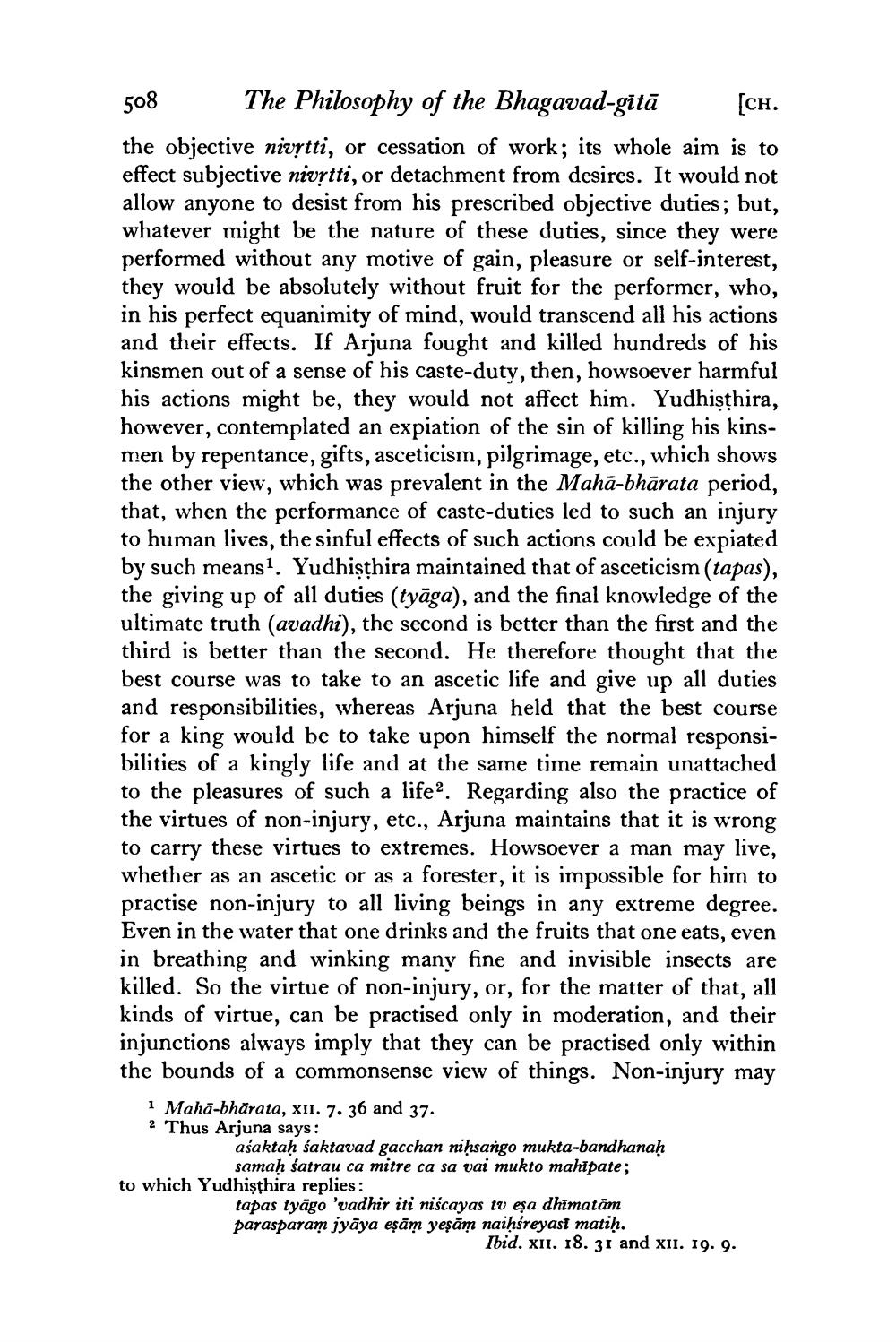________________
508
The Philosophy of the Bhagavad-gitā
[CH.
the objective nivṛtti, or cessation of work; its whole aim is to effect subjective nivṛtti, or detachment from desires. It would not allow anyone to desist from his prescribed objective duties; but, whatever might be the nature of these duties, since they were performed without any motive of gain, pleasure or self-interest, they would be absolutely without fruit for the performer, who, in his perfect equanimity of mind, would transcend all his actions and their effects. If Arjuna fought and killed hundreds of his kinsmen out of a sense of his caste-duty, then, howsoever harmful his actions might be, they would not affect him. Yudhisthira, however, contemplated an expiation of the sin of killing his kinsmen by repentance, gifts, asceticism, pilgrimage, etc., which shows the other view, which was prevalent in the Mahā-bhārata period, that, when the performance of caste-duties led to such an injury to human lives, the sinful effects of such actions could be expiated by such means1. Yudhisthira maintained that of asceticism (tapas), the giving up of all duties (tyāga), and the final knowledge of the ultimate truth (avadhi), the second is better than the first and the third is better than the second. He therefore thought that the best course was to take to an ascetic life and give up all duties and responsibilities, whereas Arjuna held that the best course for a king would be to take upon himself the normal responsibilities of a kingly life and at the same time remain unattached to the pleasures of such a life2. Regarding also the practice of the virtues of non-injury, etc., Arjuna maintains that it is wrong to carry these virtues to extremes. Howsoever a man may live, whether as an ascetic or as a forester, it is impossible for him to practise non-injury to all living beings in any extreme degree. Even in the water that one drinks and the fruits that one eats, even in breathing and winking many fine and invisible insects are killed. So the virtue of non-injury, or, for the matter of that, all kinds of virtue, can be practised only in moderation, and their injunctions always imply that they can be practised only within the bounds of a commonsense view of things. Non-injury may
1 Maha-bharata, XII. 7. 36 and 37.
2 Thus Arjuna says:
asaktaḥ śaktavad gacchan niḥsango mukta-bandhanaḥ samaḥ śatrau ca mitre ca sa vai mukto mahipate; to which Yudhisthira replies:
tapas tyago 'vadhir iti niscayas tv eşa dhimatām parasparam jyāya eṣām yeṣām naiḥśreyast matiḥ. Ibid. XII. 18. 31 and XII. 19. 9.




